Family, grief, greatness: Charlotte 49ers women’s basketball coach as resilient as they come
Ask Tomekia Reed what made being the new coach of the Charlotte 49ers’ women’s basketball program so compelling, and one word will keep resurfacing.
Family.
Family among the program’s players. Family among the alumni. Family in the athletic administration, in how athletic director Mike Hill and associate AD Ragean Hill have “assured me that they will be behind me, will support me.” Family among coaches, too.
“I’ve had a lot of coaches reach out to me since I was hired, and the one word that I heard consistently among everybody was ‘family,’” Reed said. She told this to a crowd of about 100 on Monday afternoon in Halton Arena at her introductory press conference after being announced as the program’s ninth head coach last week.
“And if you know me, you know family means the world.”
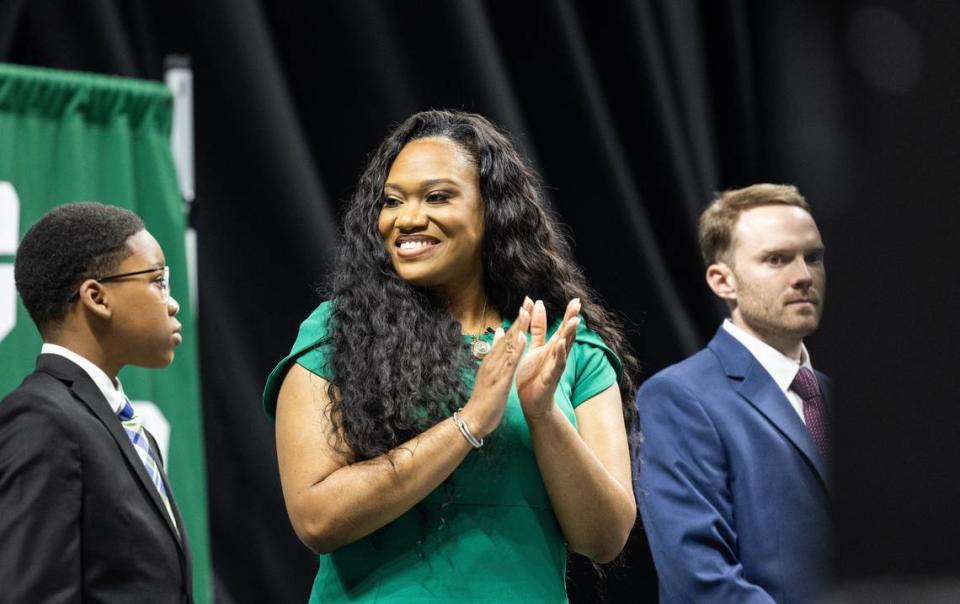
There’s a lot to get to know about Charlotte’s new head coach. Reed, 41, is the first Black woman to take the women’s basketball head coaching mantle at the university. She’s coming from Jackson State, where in six years the head coach put together a remarkable resume: five regular-season championships, three bids to the NCAA Tournament, four SWAC Coach of the Year honors, three HBCU National Coach of the Year selections. There have been only seven WNBA draft picks from HBCUs in the league’s history and only two since 2002. Both of those players — Ameshya Williams-Holliday and Angel Jackson — played for Reed.
But to truly understand Reed’s story is to begin with family. Who raised her, after all, has been the source for so much in her life: of her introduction to and love of basketball, of moments of grief, of stretches of greatness. It is what has made Reed as resilient as they come — and it’s also what has tested that resilience.
Ask her brothers why she’ll succeed at Charlotte — whether that be Victor, 42, or Cazinova, 52 — and they’ll come up with the same answer.
“She’s a Reed.”
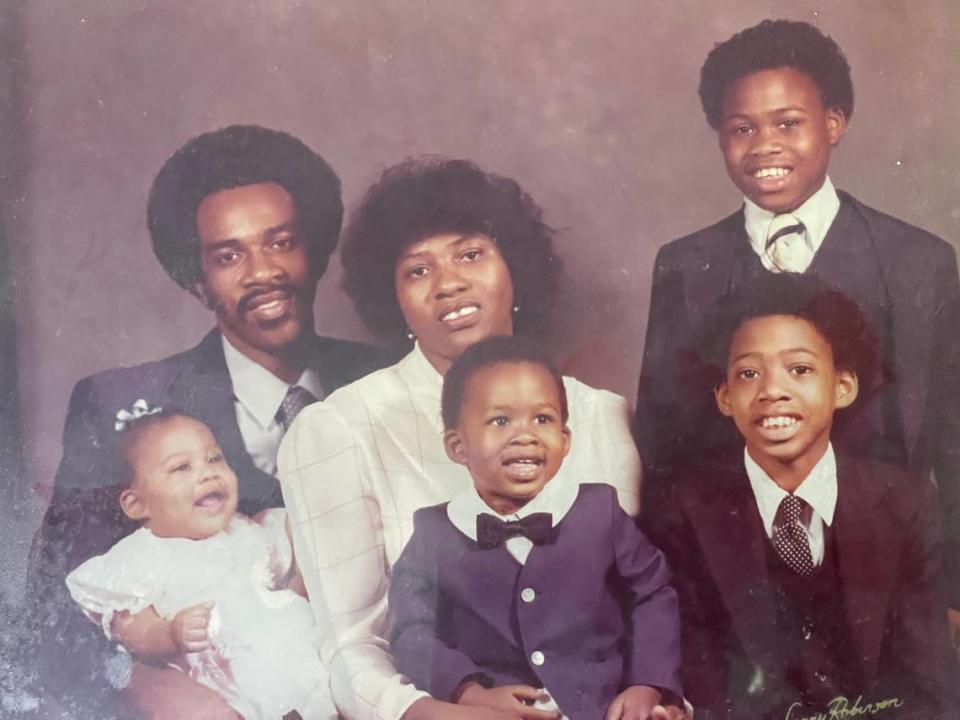
The court Tomekia Reed learned toughness
Picture the familiar scene. It’s 9 p.m. in the backyard of Tomekia’s childhood home in Jackson, Mississippi, and all six members of the Reed family are out on the concrete court, dribbling into the night.
There’s John, the father. He’s backing down one of his four kids and putting up skyhooks that resemble a smaller Kareem Abdul-Jabbar. John is a championship-winning youth football coach in the community. He’s also a baptist minister. He preaches family values, of sticking together no matter what, almost as often as he breathes. Everyone knows him, and thus everyone knows his family.
There’s Edith, the mother. She’s zooming around her defenders like she once did in her high school and college days. She’s a youth counselor by day, working with troubled kids and putting them on a better life path.
There’s also Cazinova and Carlos and Victor, the three brothers. They’re almost certainly exchanging barbs and buckets, tough moves and tougher fouls. They all are athletes in their own ways. Cazinova is a star football player and will go on to play football at Southern Mississippi, spending his freshman year as a receiver catching passes from Brett Favre. Carlos, according to Victor, is “Steph Curry before Steph Curry,” a lights-out shooter. Victor is a track star.
And in the middle of it all is Tomekia: the youngest child and only daughter, the shooter and reliable rebounder.
Off the court, she’s the younger sister her three older brothers are quick to protect. But on it? Game on.
“My mom took two of us, and my dad took two of us, so it was 3 on 3 out there, and it was no holds barred,” Victor said in an interview, describing those games.
It didn’t matter what time of year it was, either. Victor remembers sweating through Mississippi summers. He remembers seeing steam coming off of his siblings’ heads in the winters. He remembers the days before his father installed the lights and laid down the concrete, back when it was a dirt court. He remembers the court as a meeting spot for kids in the neighborhood to come by and spend their Saturdays and Sundays — even the neighborhood’s best, including a guy named Joseph Courtney, who’d later spend a few years in the NBA and a handful of games with the championship-winning, Michael Jordan-led Chicago Bulls in 1993.
“We’re fussing,” Victor continued. “We’re fighting. Hard fouls. It’s going down out there.”
Cazinova has a similar recollection.
“The three of us, we weren’t gonna take it easy on her. And nobody else was going to take it easy on her, and it was tough,” Cazinova said of Tomekia, who was the only girl who’d play with the neighborhood hoopers. “Sometimes you cry. Sometimes you get hurt. Sometimes you lose. Sometimes you get into some pushing matches. But it was part of the game, part of growing up.”
He added: “Right there in the backyard is where she’d learn toughness.”
And those lessons would stick with her throughout her life.
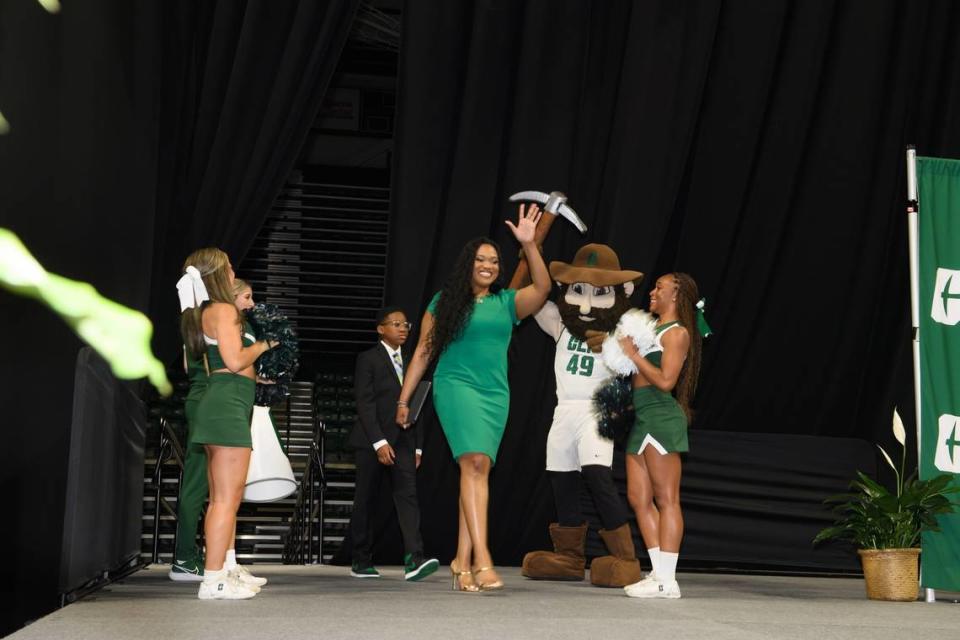
The wins and losses we remember
It’s tempting to rehash Tomekia’s basketball life through her many wins as a player and coach. But it’s the losses that make time stand still.
Tomekia lost her mother to breast cancer when she was in high school. The two were super close. Edith was always “mom,” Cazinova said, but she and Tomekia were also like “sisters,” confiding in each other, moving through the world as sisters do. Tomekia dedicated the rest of her playing days — one that included three 5A state championships at Murrah High School and a four-year college career at various schools — to her mother, Cazinova said.
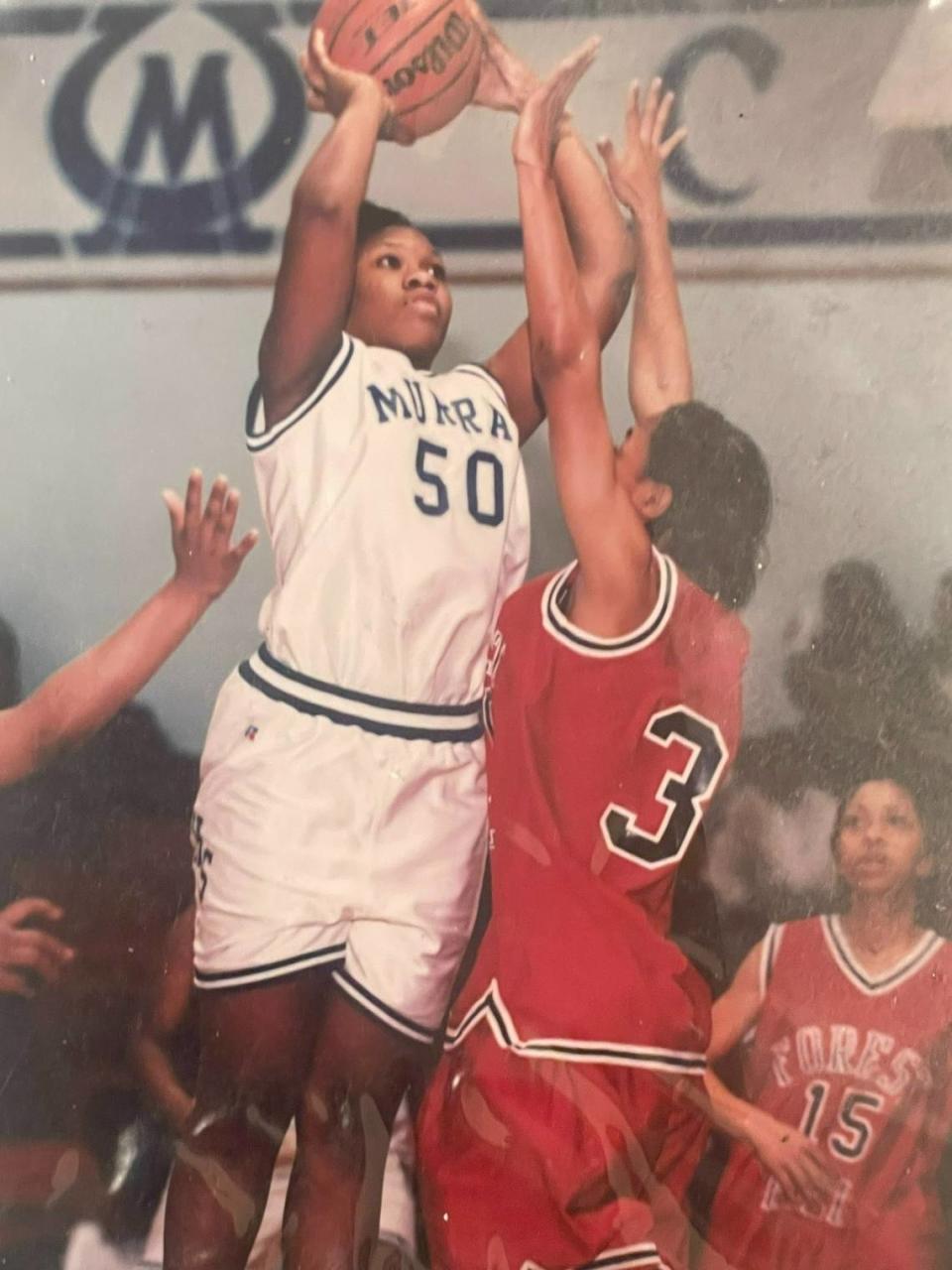
After her playing days ended in 2003, Tomekia began her coaching career. And she rose fast. By 2006, she served as the top assistant and lead recruiting coordinator for the Jackson State Tigers. Wins mounted, but so did another loss. In 2008, her brother Carlos, who she called her No. 1 fan, was murdered by gun violence. The death shook the entire family and community.
Carlos’s death is what prompted Tomekia to leave Jackson to pursue other coaching opportunities, she’d later say. But in 2018, she eventually returned to JSU as head coach. Her father, John, was present at her introductory press conference, applauding and beaming as his daughter shined. Before the first game of that season, though, her father died, too, due to a blood clot following surgery complications.
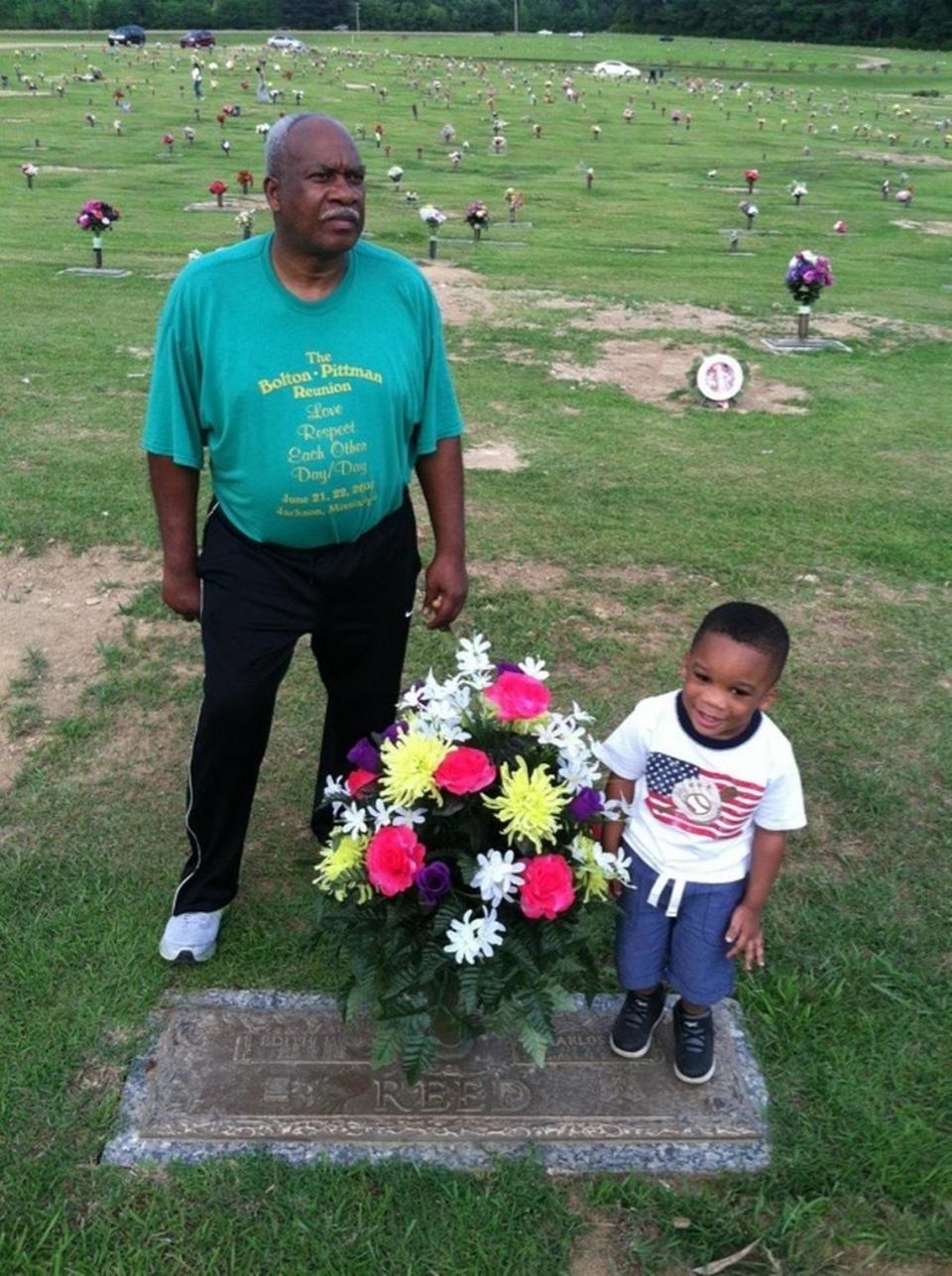
By the time Tomekia Reed was the head coach in her hometown — before the WNBA draft picks and NCAA Tournament appearances — she was a daughter without parents, a sister with one less brother.
That said, she was never without family.
“Going through the things, the losing of my mother, the losing of my brother, father — there is nothing she can’t do,” Cazinova said. “Of course she’s going to have some doubts. Some down time. But even when she was here, and our father was gone, I stepped in (to say), ‘Hey, you got this.’”
She always did.
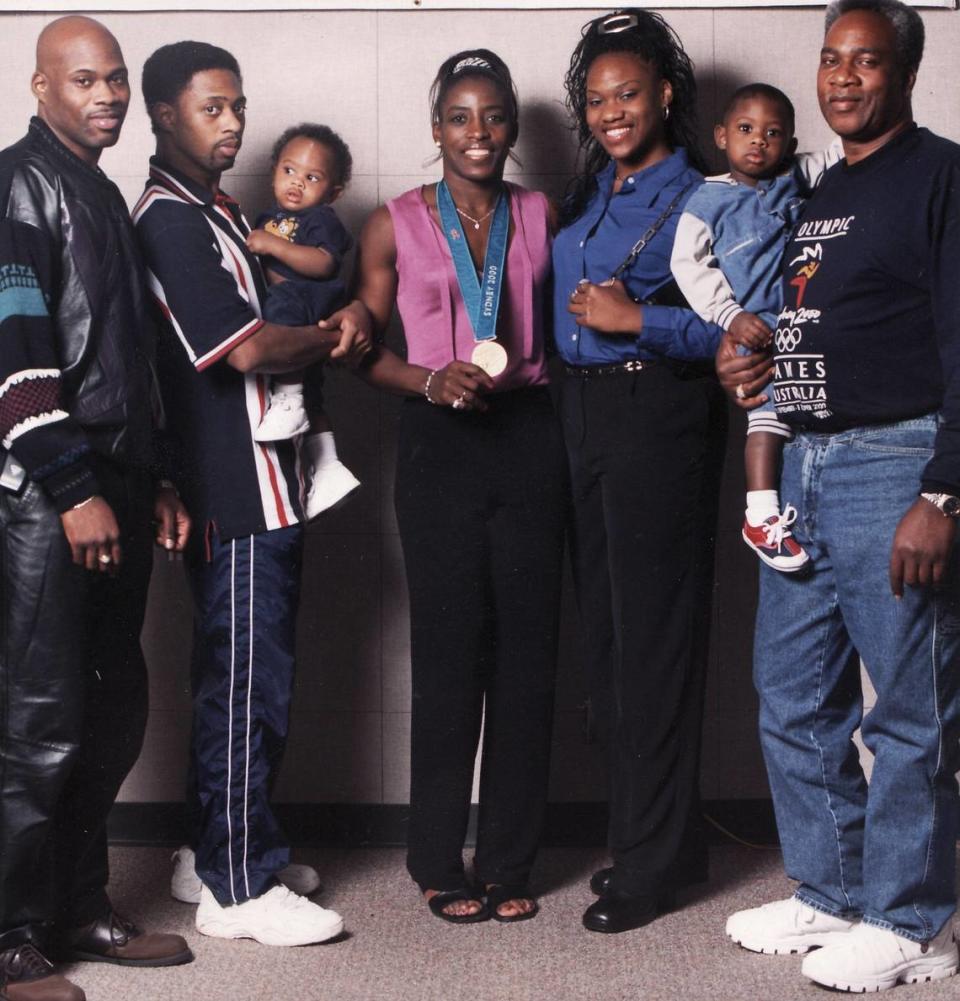
Everyone is rooting for Tomekia Reed in Charlotte
Six years of wins have mounted since that JSU job, that last family loss. It’s hard to overstate the success she saw at her hometown school. It’s also hard to overstate the welcoming she’s received since accepting the job at Charlotte.
Just ask Mike Hill, Charlotte’s athletic director.
“Honestly, I’ve never, in my career experience of hiring a head coach, seen a more roundly well-received and celebrated hire than Tomekia,” Hill told The Charlotte Observer. “That’s from our fans and then also people in her world — who love her and revere her from Jackson State, from HBCUs, from the basketball world.”
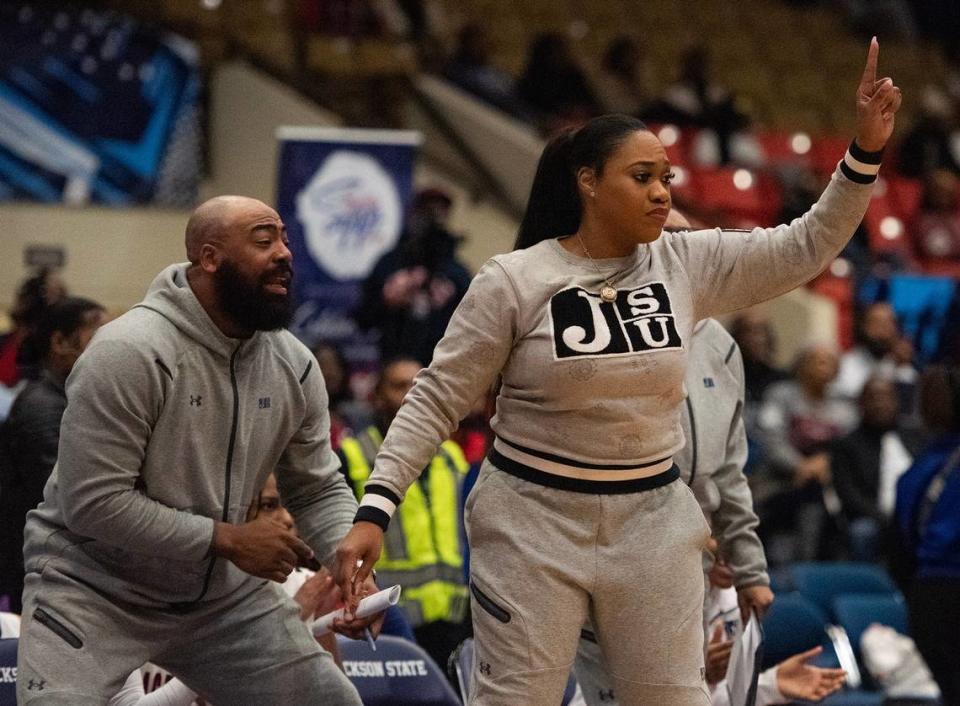
That was on display Monday, in Halton Arena, in her introductory press conference. The ACC’s associate commissioner of women’s basketball, Jackie Carson, was in the crowd. Tomekia’s 12-year-old son, Carlon, who she often refers to as her “associate head coach,” sat behind her as she gave her speech. Her two brothers, Victor and Cazinova, watched on the live stream online.
By the end of Reed’s introductory press conference, she had 1,554 unread text messages and 78 missed calls. They probably resembled the many texts Hill received after making the hire himself.
“The number of texts I received after we hired her from people who are not affiliated with us, who are with the Big Ten Network and the SEC — so many said ‘Great hire,’ or ‘Incredible hire,’ or ‘Finally, someone was smart and gave her a chance,’” Hill said. “That was really impressive.”
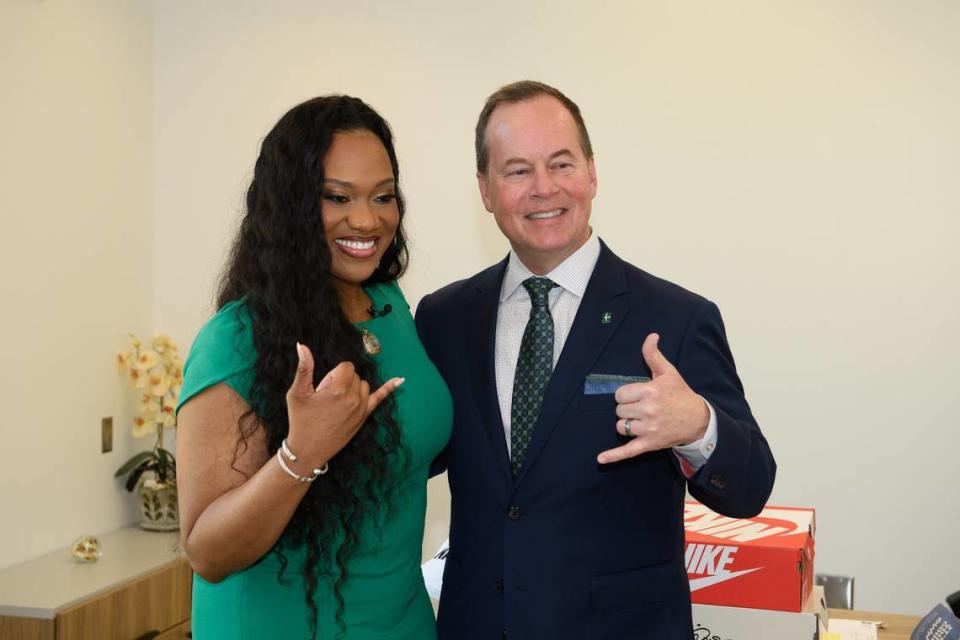
Work lies ahead. Reed, after all, is replacing Cara Consuegra, the 49ers’ all-time program wins leader who moved on to Marquette this offseason. Still, Reed did not shy away from speaking in superlatives on Monday. At the podium she said her team will play a fast, physical, fun game. She said her program would be the “most trendy, most attractive and winningest program in Division I college basketball.” She said she heard that her current players are hungry to win championships, and that they “have the right one” for that. She said that she knows that cultivating fandom doesn’t start and end in the arena — that it requires the whole campus’s involvement, the whole community’s buy-in.
She’s even mentioned the possibility of bringing the Dawn Staley-led South Carolina Gamecocks to Halton Arena.
“We have talked about playing a game with Dawn here,” Reed said. “We are working on that. I’m certainly not afraid to play the big schools.”
That fearlessness is something her family — her brothers and her father and her mother, on that backyard hoop and beyond — instilled in her long ago. It’s created a belief that Charlotte has already caught on to.
Said Hill: “I would not challenge her on what she believes we can be.”

 Yahoo Sports
Yahoo Sports 